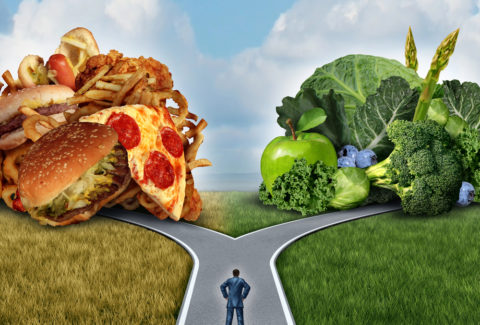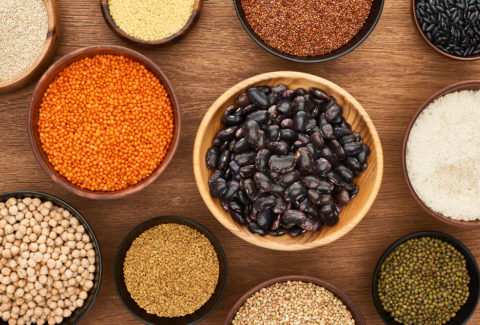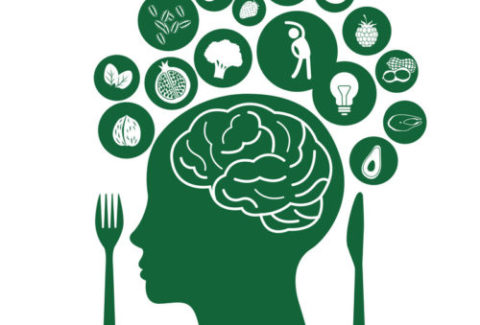The Sugar Dilemma: A Vicious Cycle of Consumption
Sugar, sweet, and tempting, has a way of luring us into its delectable embrace. Many of us know that consuming too much sugar can be detrimental to our health, yet we often find ourselves caught in a seemingly never-ending cycle of feeding that sweet tooth. In this article, we will explore the reasons behind the phenomenon of “the more sugar you eat, the more sugar you eat” and its impact on our well-being.
The Sugar Addiction Cycle[1]:
Sugar Consumption and Cravings, Sugar High and Crash, and The Vicious Cycle:
It all begins with that first sugary treat. Whether it’s a piece of cake, a candy bar, or a sugary drink, the rush of pleasure we experience when we consume sugar triggers the brain’s reward system. This release of feel-good neurotransmitters, like dopamine, creates a pleasurable sensation, making us want more. However, the initial sugar rush is often short-lived. Shortly after consuming sugar, blood sugar levels spike, providing a burst of energy[2], but this is typically followed by a crash. The crash leaves us feeling tired and craving more sugar to regain that energy and mood lift. As we give in to our cravings and consume more sugary foods or drinks, we enter a vicious cycle. Each consumption triggers the reward system, followed by the inevitable crash. This cycle perpetuates our cravings, causing us to seek out more sugar to maintain the fleeting high.[3]
Factors Contributing to Sugar Consumption
Food Industry, Social and Emotional Factors, Stress and Coping
The food industry is well aware of the addictive nature of sugar, and many processed foods are formulated to be high in sugar[4]. This makes it challenging for individuals to avoid sugar, as it’s often hidden in unexpected places. Furthermore, sugar is often associated with celebrations, comfort, and emotional rewards. Events like birthdays and holidays are typically marked with sweet treats, reinforcing the emotional connection to sugar. Lastly, many people turn to sugary snacks as a coping mechanism for stress or emotional distress[5]. The temporary relief from stress or sadness that sugar provides can make it an appealing choice during difficult times.
The Health Consequences
Overconsumption of Sugar is Linked to a Range of Health Issues
These health issues include obesity[6], type 2 diabetes, dental problems, and heart disease:
Sugar is calorie-dense, and excessive consumption can lead to weight gain and obesity. High sugar intake can contribute to insulin resistance and an increased risk of developing type 2 diabetes[i]. Sugar is a leading cause of tooth decay[7] and cavities and excessive sugar consumption is associated with an increased risk of heart disease[8].
Breaking the Cycle
Breaking free from the cycle of sugar consumption can be challenging but is essential for our health. Some quick and practical tips include reading labels, moderate use, and healthy alternatives. It is important to be mindful of food labels and ingredients. It is also important to understand that sugar goes by many names, such as sucrose, fructose, and high fructose corn syrup. If you must, then enjoy sugary treats in moderation, and savor them as occasional indulgences rather than daily staples. Start substituting sugary snacks with healthier options like fruit, nuts, or yogurt.
It is also important to stay hydrated and embrace mindful eating. Drinking plenty of water will help reduce sugar cravings, and practicing mindful eating can help you become more attuned to your body’s hunger and fullness cues.
In Conclusion:
Remember that the more sugar you eat, the more sugar you eat. It is a cycle that can be challenging to break, but it’s crucial for our overall well-being. Being aware of the addictive nature of sugar, understanding the factors that drive our cravings, and making conscious choices to reduce sugar consumption are essential steps toward a healthier, happier, and less sugar-dependent life.
What’s Next:
- Review Past Articles: Delve deeper into nutrition and well-being by revisiting previous articles in this series.
- Stay Informed: Keep up with the latest research and recommendations on nutrition for optimal health.
- Client Conversations: Continue to engage in regular conversations with your clients about nutrition, helping them overcome obstacles to healthier eating habits.
Remember, as clinicians, your awareness and understanding of nutrition are essential for inspiring optimal transformations in both you and your patients. This series equips you with the tools needed to empower change and optimal well-being.
Until the next article, let’s continue our quest for discovery and healing through the power of nutrition.
[1] Onaolapo, Adejoke Y., Olakunle J. Onaolapo, and Olugbenga A. Olowe. “An overview of addiction to sugar.” Dietary Sugar, Salt and Fat in Human Health (2020): 195-216.
[2] Klasco, Richard. “Is There Such a Thing as a’Sugar High’?.” The New York Times (2020): D6-L.
[3] Olszewski, Pawel K., et al. “Excessive consumption of sugar: an insatiable drive for reward.” Current nutrition reports 8 (2019): 120-128.
[4] Stanner, S. A., and A. Spiro. “Public health rationale for reducing sugar: Strategies and challenges.” Nutrition Bulletin 45.3 (2020): 253-270.
[5] Jacques, Angela, et al. “The impact of sugar consumption on stress driven, emotional and addictive behaviors.” Neuroscience & Biobehavioral Reviews 103 (2019): 178-199.
[6] Bentley, R. Alexander, Damian J. Ruck, and Hillary N. Fouts. “US obesity as delayed effect of excess sugar.” Economics & Human Biology 36 (2020): 100818.
[7] Broomhead, Tom, Dimitris Ballas, and Sarah Baker. “Oral health, sugary drink consumption and the soft drink industry levy: using spatial microsimulation to understand tooth decay.” Regional Science Policy & Practice (2023).
[8] Yin, Jiawei, et al. “Intake of sugar-sweetened and low-calorie sweetened beverages and risk of cardiovascular disease: a meta-analysis and systematic review.” Advances in Nutrition 12.1 (2021): 89-101.
[i] Genco, Robert J., and Wenche S. Borgnakke. “Diabetes as a potential risk for periodontitis: association studies.” Periodontology 2000 83.1 (2020): 40-45.









